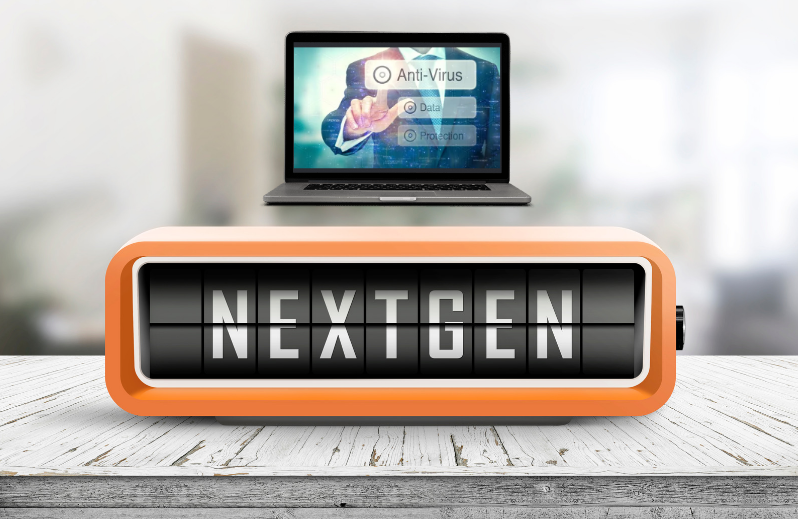NextGen Anti-Virus Solutions

In the ever-evolving landscape of cybersecurity, the emergence of Next-Generation Antivirus (NGAV) solutions has marked a paradigm shift in how organizations defend against sophisticated cyber threats. Traditional antivirus solutions, while effective in their time, struggled to keep pace with the rapidly advancing tactics employed by cybercriminals. This article delves into the key features of Next-Generation Antivirus solutions and provides a comprehensive comparison with their traditional counterparts, along with recommendations for top NGAV solutions in the market.
Key Features of Next-Generation Antivirus:
- Behavioral Analysis:
- Traditional Antivirus: Relies on signature-based detection, matching known malware signatures.
- Next-Generation Antivirus: Utilizes advanced behavioral analysis to identify suspicious activities and anomalies, even without predefined signatures.
- Machine Learning and AI:
- Traditional Antivirus: Lacks adaptive learning capabilities, making it less effective against new and evolving threats.
- Next-Generation Antivirus: Leverages machine learning algorithms and artificial intelligence to continuously learn from new data and adapt to emerging threats.
- Endpoint Detection and Response (EDR):
- Traditional Antivirus: Primarily focused on prevention, with limited capabilities for post-breach detection and response.
- Next-Generation Antivirus: Integrates EDR functionalities, allowing for real-time monitoring, threat detection, and rapid response to security incidents.
- Cloud-Based Architecture:
- Traditional Antivirus: Typically relies on local signature databases and periodic updates.
- Next-Generation Antivirus: Leverages cloud-based architectures for real-time threat intelligence, instant updates, and the ability to scale seamlessly.
- Zero-Day Threat Protection:
- Traditional Antivirus: Struggles with identifying and mitigating zero-day threats, which exploit vulnerabilities before they are widely known.
- Next-Generation Antivirus: Employs advanced heuristics, sandboxing, and other proactive measures to detect and block previously unseen threats.
- Application Whitelisting and Micro-Segmentation:
- Traditional Antivirus: May lack granular control over application access and network segmentation.
- Next-Generation Antivirus: Incorporates application whitelisting and micro-segmentation to restrict unauthorized access and contain potential breaches.
- User and Entity Behavior Analytics (UEBA):
- Traditional Antivirus: Focuses primarily on file-based threats, often overlooking malicious user behavior.
- Next-Generation Antivirus: Integrates UEBA to analyze user activities, detect anomalies, and identify potential insider threats.
Comparison:
- Threat Detection Accuracy: NGAV excels in detecting advanced threats and zero-day exploits due to its reliance on behavioral analysis and machine learning.
- Resource Utilization: Traditional antivirus solutions may consume more system resources, impacting device performance, whereas NGAV often operates more efficiently.
- Scalability: NGAV, with its cloud-based architecture, offers superior scalability and adaptability to evolving cyber threats compared to traditional solutions.
- Incident Response: NGAV provides enhanced incident response capabilities with integrated EDR functionalities, allowing organizations to respond swiftly to security incidents.
- Ease of Management: Traditional antivirus solutions may require more manual intervention for updates and management, while NGAV offers centralized, cloud-based management for streamlined operations.
Recommended Next-Generation Antivirus Solutions:
- CrowdStrike Falcon:
- Renowned for its cloud-native architecture, CrowdStrike Falcon offers advanced threat protection with AI-driven analytics and real-time endpoint visibility.

- Carbon Black by VMware:
- Combining endpoint security and EDR, Carbon Black provides continuous threat monitoring, advanced threat hunting, and comprehensive incident response capabilities.

- CylancePROTECT:
- CylancePROTECT utilizes AI and machine learning to proactively prevent threats, making it a robust solution for organizations seeking predictive security.

- Sophos Intercept X:
- With deep learning technology, Sophos Intercept X provides top-notch protection against ransomware, exploits, and other advanced threats, coupled with EDR features.

- SentinelOne:
- SentinelOne focuses on autonomous endpoint protection using behavioral analysis and AI, offering real-time threat detection and automated response capabilities.

Conclusion:
Next-Generation Antivirus solutions represent a significant leap forward in cybersecurity, offering a proactive defense against the dynamic landscape of cyber threats. While traditional antivirus solutions still play a role in basic protection, organizations looking to fortify their defenses and stay ahead of sophisticated adversaries are increasingly turning to NGAV for a more robust and adaptive security posture. As cyber threats continue to evolve, embracing the capabilities of Next-Generation Antivirus becomes paramount for safeguarding the digital assets of individuals and businesses alike. Among the recommended solutions, CrowdStrike Falcon, Carbon Black by VMware, CylancePROTECT, Sophos Intercept X, and SentinelOne stand out as leaders in the NGAV space, providing comprehensive protection and advanced threat intelligence.
You think you have a story worth everyone’s time? SUBMIT A STORY and we will publish it.
Share this content:




Post Comment